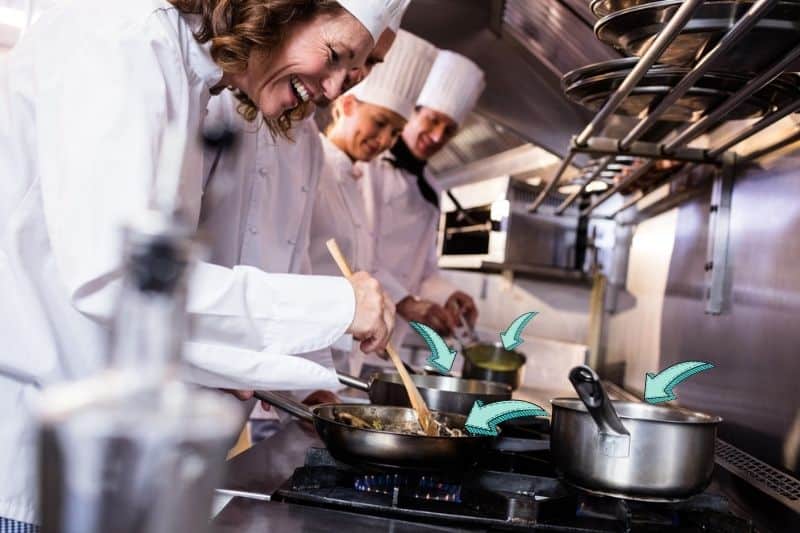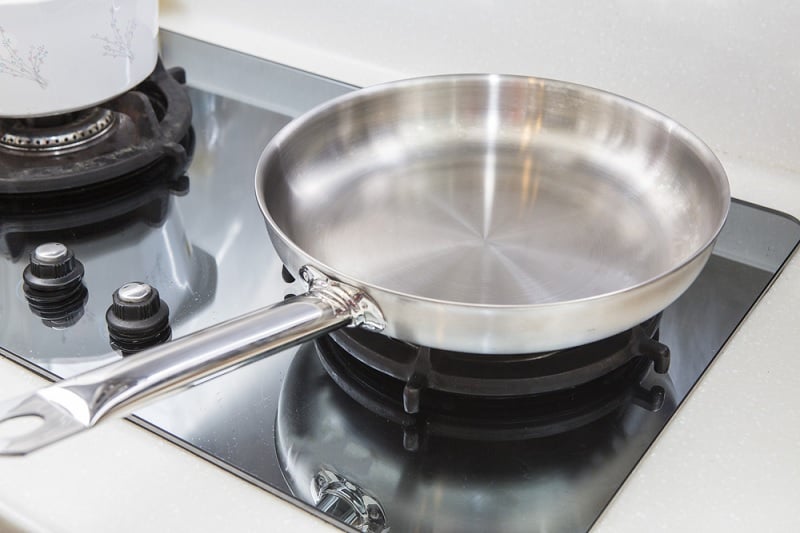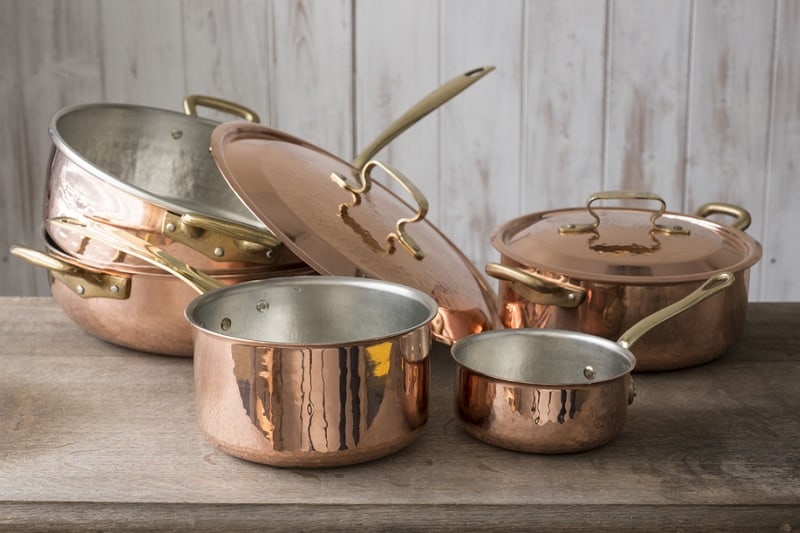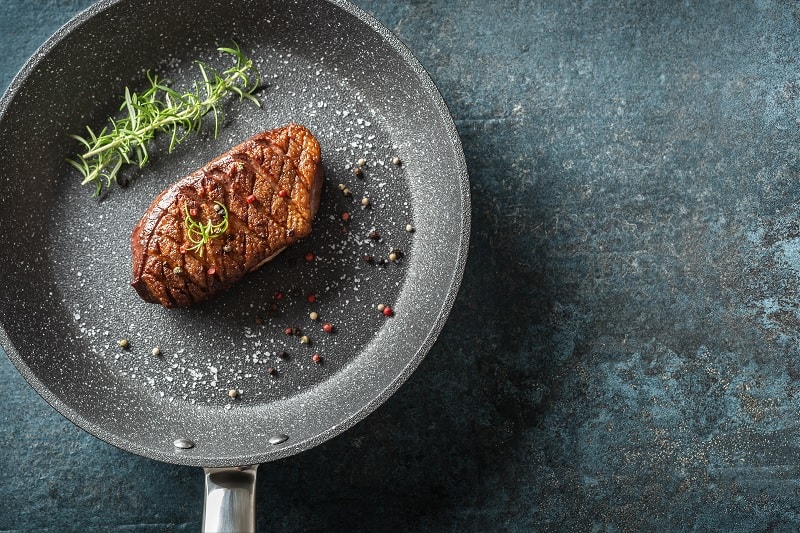Many home chefs wonder why chefs in professional kitchens use carbon steel pans. Are they the best pans ever made? Should you be using carbon steel cookware in your kitchen?
Today, we’re looking at all the reasons why pro chefs use carbon steel in busy restaurant kitchens and whether though reasons may mean you should use them in your kitchen too.
Why Chefs Use Carbon Steel Pans
1. Price
One of the biggest reasons chefs use carbon steel pans is the price. They are fantastically cheap, and they can buy lots at a time from catering equipment companies.
This means that when one pan has been used, they can fling it into the sink and grab a fresh one from the pile.
While all professional chefs will likely get their carbon steel pans from catering companies that sell them in bulk, you can still buy carbon steel pans individually online for less than £10!
2. Heat retention
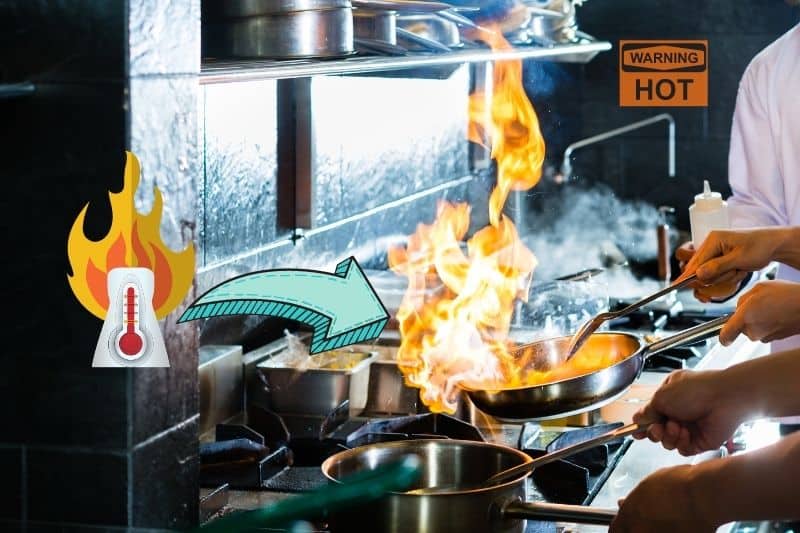
Everything in a professional kitchen moves very quickly, and chefs don’t have time to wait for cast iron to heat up, for example. Carbon steel pans are extremely thin, so once they make contact with heat, they are almost instantly ready to cook with.
3. Not non-stick
This seems like an odd benefit, but chefs prefer pans that are not non-stick because the non-stick coating often gets in the way in a busy kitchen.
They cook with enough oil that nothing sticks to the pan, and they can easily transfer carbon steel pans into the oven without worrying about the coating.
Plus, non-stick coatings can’t take extreme transfers of heat very well. Most food cooked in a professional kitchen is done so quickly, so a non-stick coating will break down far quicker in a setting like this.
4. Oven-proof
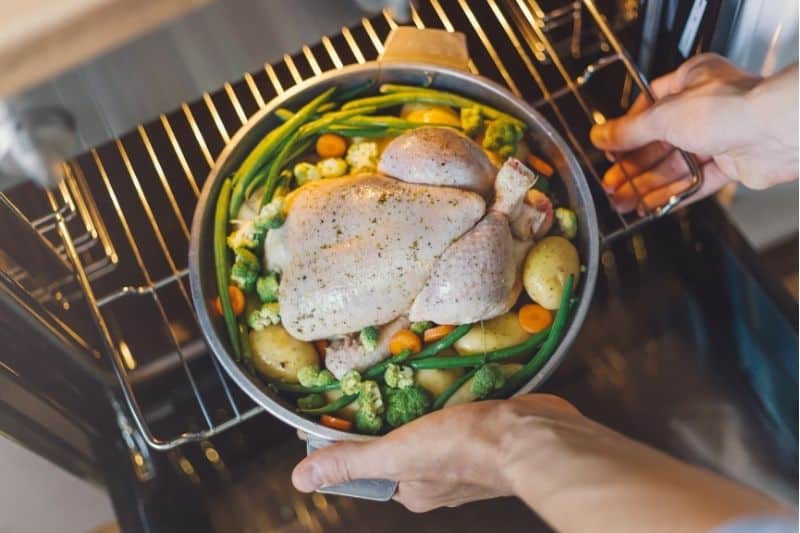
All carbon steel pans in restaurants have metal handles, and they don’t have non-stick coatings. This means that chefs can sear meat in a pan and then transfer the whole thing into the oven.
This saves on washing up and time, but it keeps all of the flavours in the pan (and the meat) too.
5. Durable
Carbon steel pans are extremely durable. The handles are riveted on, so they will never fall off. The pans are nice and strong too. However, because they don’t have a coating of any kind, the pan can deform slightly without affecting its functions.
If a non-stick pan deforms, you need to throw it away because the coating can start peeling. Carbon steel can be used well after it looks like a banana.
6. Lightweight
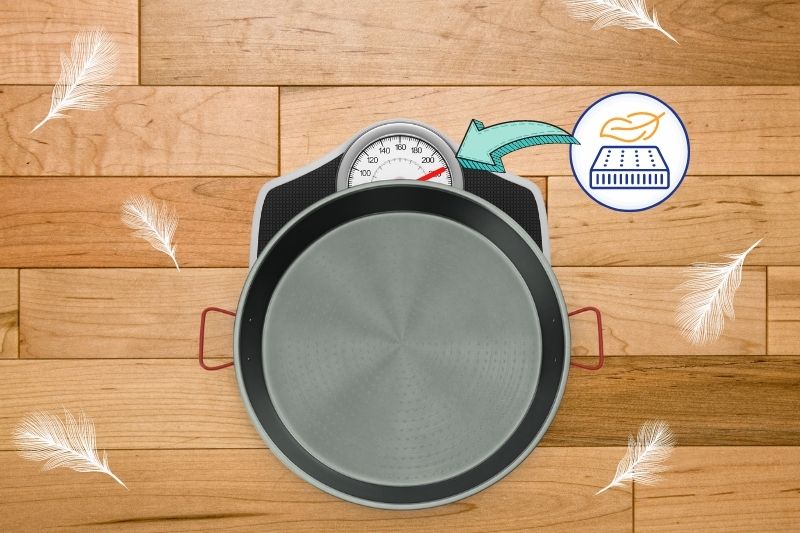
Another perfect option for professional kitchens would be cast iron. Still, it takes way too long to heat up (in a professional kitchen), and it is extremely heavy to be throwing around a kitchen every single night.
Carbon steel has much the same properties as cast iron, but it is extremely lightweight, so chefs can cook with them all night without feeling fatigued.
Carbon steel pans are workhorses. For a professional kitchen, there is nothing better than carbon steel. They are extremely cheap, durable, oven-proof, and easy to cook with if you know what you’re doing.
Should You Use Carbon Steel Cookware at Home?
If professional chefs love carbon steel cookware, does that mean we should all be using it in our kitchens? No, not necessarily. Carbon steel is brilliant in a pro kitchen, but we don’t cook with the same speed and intensity as the pros do.
We have the luxury of time to cook, which means we can use non-stick or cast-iron cookware and allow it to reach the right temperatures slowly.
There is certainly a place for carbon steel in our home kitchens. If you enjoy cooking with cast iron but aren’t a fan of the weight, or you enjoy cooking at very high temperatures (many professional woks are made from carbon steel, for example), it is a brilliant option.
Carbon steel pans are excellent in a professional kitchen, and they do have a place in our kitchens at home for certain cooking tasks. Carbon steel woks are particularly popular in home kitchens since wok cooking requires cooking at high heat quickly.
Check out our list of the best carbon steel woks in the UK if you’re interested in seeing what they can do.

Scott is a writer and a passionate home chef. His passion for cooking began when he was 10 years old. Scott has been writing professionally for over five years now and loves to combine his passion for cooking with his day job.

